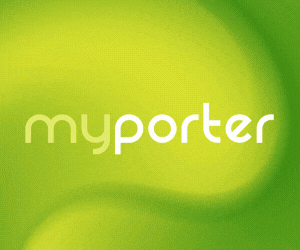Simon Stevens has called on tech firms to help the NHS become a world leader in the use of artificial intelligence (AI) and machine learning. The technology can help speed up diagnosis of cancer and other diseases and deliver more convenient care by revolutionising outpatient services.
Speaking at the Reform Health Conference this week, the NHS Chief Executive announced a global call for evidence from technologists for how the NHS can best incentivise the use of carefully targeted AI across its services from April 2020 and beyond.
The NHS boss challenged tech innovators to come forward with proposals for how the NHS can harness innovative solutions that can free up staff time and cut the time patients wait for results. He also pledged to consider reimbursement reforms to the NHS tariff and other payment systems to incentivise quick and safe adoption across the NHS.
Exploiting the boom in AI technology will help to meet the NHS Long Term Plan’s target of making up to 30 million outpatient appointments unnecessary, saving over £1 billion in what would have been increasing outpatient visits which can then be reinvested in front line care, saving patients unnecessary journeys to hospitals.
NHS hospitals in England currently provide over 100 million outpatient appointments. As set out in the Long Term Plan the NHS is aiming to become the first national health system in the world to digitise its outpatients system through the use of video and online consultations and make use of AI and machine learning technologies to help clinicians interpret scans part of the NHS routine.
Simon Stevens says: “As part of the NHS Long Term Plan we are going to be using new technologies and treatments to improve patient care and save more lives. We are seeing an artificial intelligence revolution that will be a big part of our future over the next five years, with technologies that can cut the time patients wait for scan results and ease the burden on hard working staff.
“We want the NHS to be first out of the blocks, so from April next year we propose to change the way we fund care so that NHS organisations who invest in this world-leading technology will be properly rewarded for doing so.
“We’re therefore kicking off a global ‘call for evidence’ for NHS staff and technology innovators to come forward with their best ideas for how we should adjust our financial frameworks to best incentivise the use of safe and evidence-based AI and machine learning technologies across the NHS.”
Whilst embracing the very latest technology and the benefits it can bring are essential for the future of the NHS, these ambitions come at a time when the service is facing capital funding pressure like never before, with backlog maintenance now in excess of £6bn, greater than the annual DHSC capital budget.
As reported by Jane Renton in the May/June issue of HEFMA Pulse, Chris Hopson, Chief Executive of NHS Providers, warned that it is difficult to see where the money for this transforming technology would be coming from. Speaking at The Spectator Summit, he said the NHS had been starved of capital over the last five or six years.
“You just need to walk around hospitals as I do every day of the week and see crumbling buildings, out of date scanners which we have to unreasonably extend the life of … You can’t drive this kind of revolution unless you absolutely have sufficient capital.”
NHS England says the NHS is carrying out more diagnostic tests than ever before as part of efforts to tackle the major killers. There were 315,000 MRI scans and over 520,000 CT scans in March alone, according to the latest figures. That is up 20% from 260,000 MRI in the same month three years ago and CT scans were up a third from 390,000 CT.
However, a briefing by the Health Foundation earlier this year ('Failing to Capitalise') highlighted that the UK lags far behind other OECD (Organisation for Economic Co-operation and Development) countries in the number of MRI and CR scanners per capita. According to the briefing, the UK has less than 10 CT scanners per million population and even fewer MRI scanners. In contrast, the USA has over 40 CT scanners and over 35 MRI scanners per million population. It cited this shortfall as an example of the inability of Trusts to afford modern technology.
Testing of AI and machine learning technology has demonstrated its potential to ease the burden on staff and free them up for other work. An AI system trialled at Moorfields Eye Hospital, London, found it made the correct referral decision for over 50 eye diseases with 94% accuracy, matching the world’s best eye experts.










